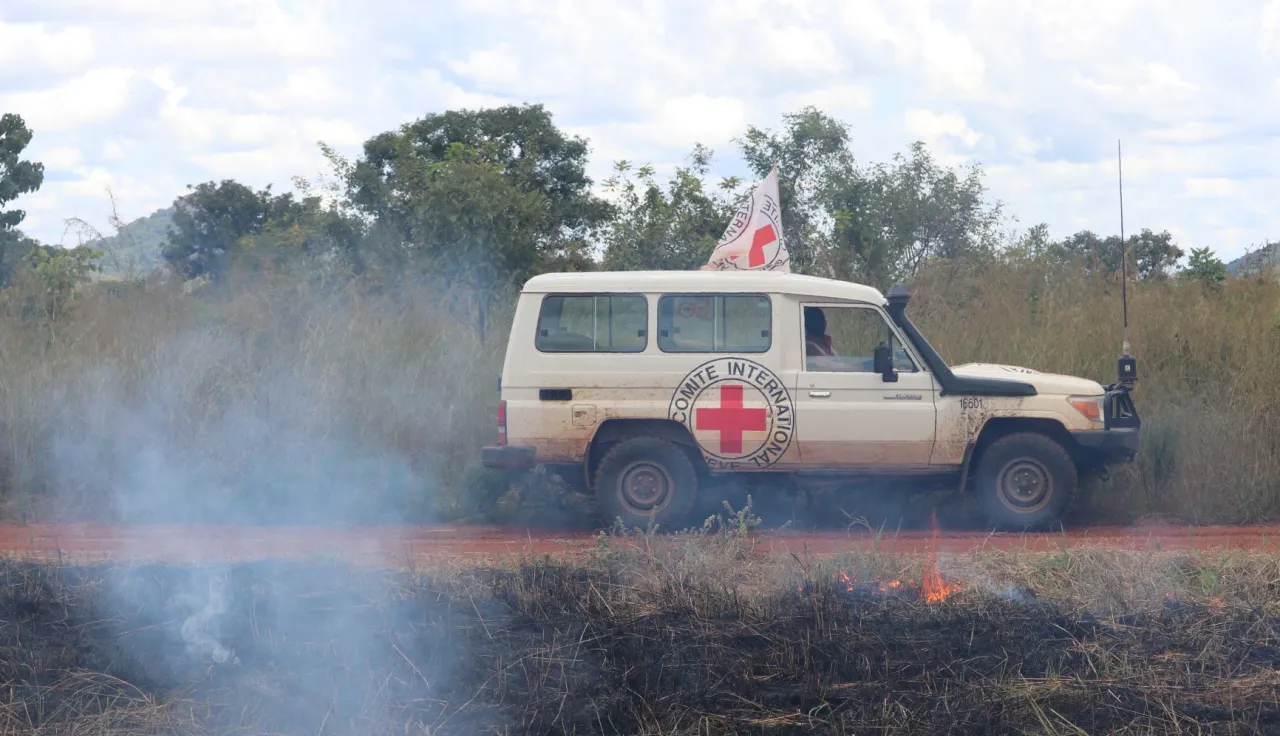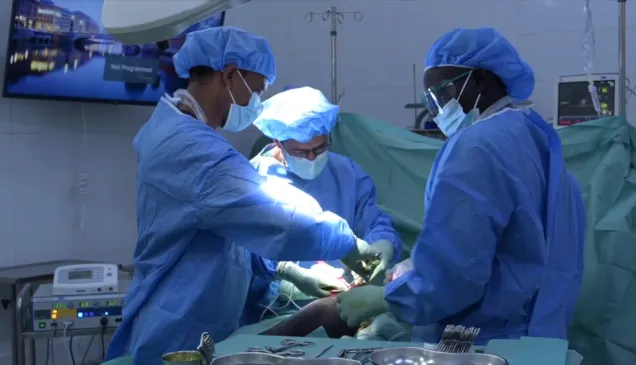Juba (ICRC) – Months of conflict followed by torrential rains have created a deepening humanitarian crisis in which communities now face a heightened risk of hunger, malnutrition and disease in South Sudan's Central, Western and Eastern Equatoria states. Thousands of people who fled their homes to escape clashes lost whatever food, crops and livestock they had. Floodwaters have left many of the displaced with even less to eat especially in Central Equatoria.
"We believe there are many people who are living in the bush who need urgent assistance," said Amro Ibrahim, ICRC's head of sub-delegation in the Equatorias. "We call on all parties to the conflict to respect their obligations under international humanitarian law to prevent human suffering and ensure the protection of civilians and their property."
Fighting between the National Salvation Front (NAS) – a non-signatory to the peace agreement – and the South Sudan People's Defence Forces, as well as between NAS and the Sudan People's Liberation Movement-in-Opposition, has flared sporadically throughout 2020.
Flooding destroys communities, and makes it harder to deliver aid.
This was Central Equatoria, in South Sudan last week.
Families urgently need help. We provided over 13,000 people with food, but they still risk malaria, malnutrition, and waterborne diseases. pic.twitter.com/uI1SYudQdO— ICRC (@ICRC) November 10, 2020
"In May 2020, armed men came from everywhere, burning houses, raping women, beating and killing people. We had to run away to hide in the bush," said Michael , a resident of a village that is now deserted in Central Equatoria State. "We lost everything. We lost our brothers and sisters, our loved ones. We are eating wild fruits, roots as we can't cultivate our fields anymore. Because of the heavy rains, the little food we were able to save is now rotting."
The ICRC and the South Sudan Red Cross have reached more than 120,000 people affected by the conflict in Central, Western and Eastern Equatoria states so far this year with assistance such as emergency food and relief items as well as seeds, farming tools, and fishing kits.
HUMANITARIAN CONCERNS
- Renewed clashes between the parties to the conflict will further deteriorate the humanitarian situation and likely cause more displacement.
- Families and communities impacted by the conflict, heavy rains and floods are in urgent need of assistance as they are unable to meet their basic needs such as food, clean drinking water, shelter and health services.
- Limited health care services in these rural communities are more inaccessible due to continuing insecurity related to the conflict. Displaced families remain at risk of malaria, malnutrition, water-borne diseases and other health related challenges.
- Access to displaced communities especially those living in the bush remains difficult. Conflict, insecurity on roads and COVID-19 restrictions limit the ability of humanitarian organizations to freely move and assist the most vulnerable at a time when access to these services remains critical.
- We call on all parties to the conflict to respect their obligations under international humanitarian law to prevent human suffering and attacks against civilians and their property.
OPERATIONAL NOTES
- Between January and September 2020, the ICRC and South Sudan Red Cross assisted over 120,000 people in Central, Western and Eastern Equatoria states in South Sudan.
o To meet emergency needs of displaced families 89,000 people received food (sorghum, beans, oil, salt and sugar) and over 35,000 people received essentials such as blankets, mosquito nets and soap.
o To help families to rebuild their livelihoods nearly 88,000 received seeds and farming tools, and 18,000 received fishing kits. - Together with the South Sudan Red Cross, our teams will continue to assess the needs of the most vulnerable and continue to provide them with assistance. This includes assisting families separated by the conflict to reconnect with their loved ones and receive family news.
- We continue to speak directly with the parties to the conflict, and maintain a dialogue on our humanitarian concerns about the conflict.
For further information, please contact:
Lucien Christen, ICRC Juba, +211 912 360 038
Aidah Khamis Woja, ICRC Juba, +211 925 230 500




